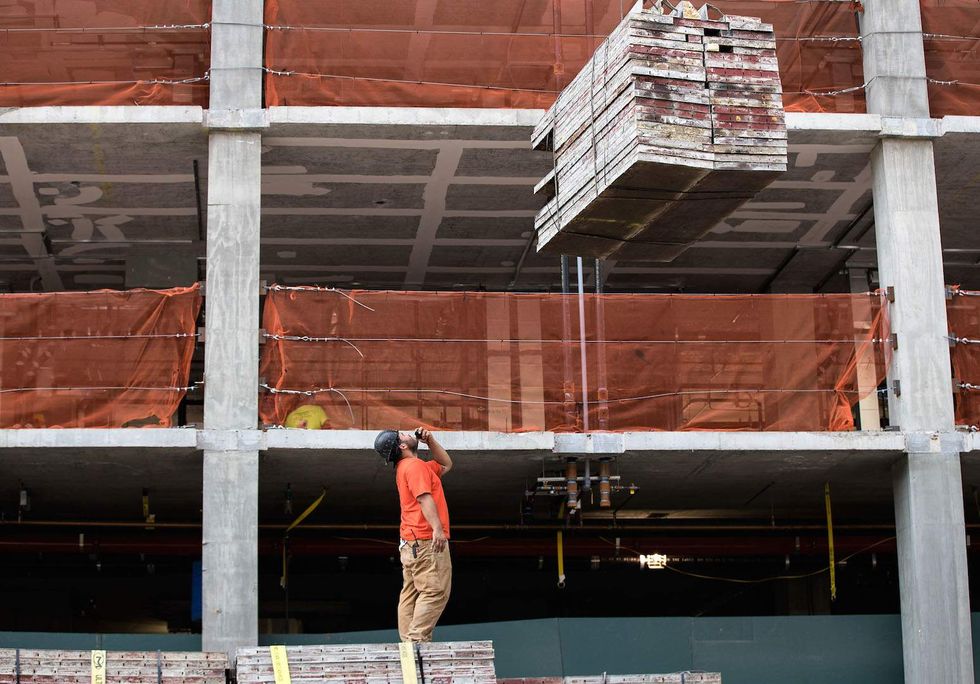
A construction laborer watches as supplies are lifted up on a new residential building in New York City. The United States Department of Labor states that there are a record number of jobs currently available in the United States, many of which are in the construction and manufacturing sectors. (Drew Angerer/Getty Images)



